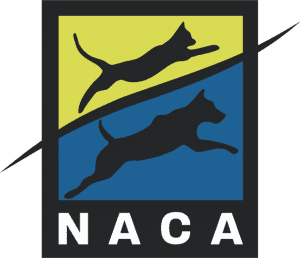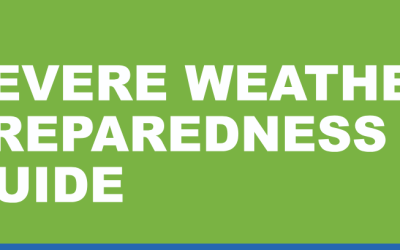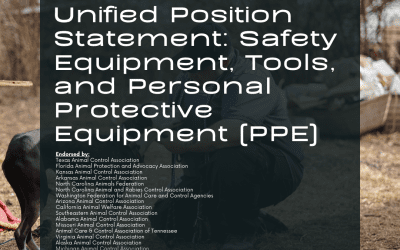A top priority of Animal Services agencies on any given day is the safety and well being of our teams, and this could not be more true during the COVID-19 Pandemic.
Knowledge is power, and as we learn more and more about the virus that causes COVID-19 we have come to understand that the direct risk for our animal care workers has been reduced. According to the CDC “[a]t this time, there is no evidence that the virus that causes COVID-19 can spread to people from the skin or fur of pets.” This information allows us to take a deep breath (metaphorically, as we don’t want to breath in any potential contagions) when it comes to our animal care teams caring for animals coming into our facilities from the community, but what about our staff members interacting directly with the public?
Animal Services agencies have multiple staff members who are interfacing with the public in a variety of ways, but customer service team member and animal control field officers are among those who interact fact-to-face with the public most frequently. Customer service team members can mitigate risk through use of appropriate persona protective equipment (PPE), scheduled services such as adoptions, foster pick-up, or pet reclaims, and limiting face-to-face contact as much as possible by using drive through type service arrangements. Field operations staff on the other hand are out in the community and may encounter any number of situations.
Animal Control Officers (ACO) and other Animal Services Field Operations personnel are some of the front-line employees most likely to encounter situations in which there is a know or suspected positive case of the virus that causes COVID-19. Here is a situation that we know as happened in many communities across the United States:
An ACO receives an assist other agency call and responds to find that they are being asked to enter the home of a known or suspected positive COVID-19 patient in order to retrieve an animal due to the owner being transported to a medical facility for admittance and care. There are no family members or neighbors who have entered the home and are able to assist. The ACO must enter the home to retrieve the canine.
In an ideal situation this ACO will have all appropriate PPE including gown, mask, and gloves that can be put on before entering and disposed of once the animal is secured on their vehicle. What we are hearing however is that in many communities PPE is limited, and Animal Control staff are not necessarily making the cut to receive any. This is unacceptable. ACOs are first responders and when put in a situation such as this they should be afforded any and all necessary to complete their job in the safest manner possible.
NACA acknowledges that our nation is facing a PPE shortage and encourages all Animal Services agencies to discontinue non-essential surgical/other medical and operations procedures requiring the use of PPE. This does not however include field operations. Situations like the above are essential operations and ACOs or other Animal Services Field Operations personnel must be appropriately outfitted to execute their essential job functions safely.






